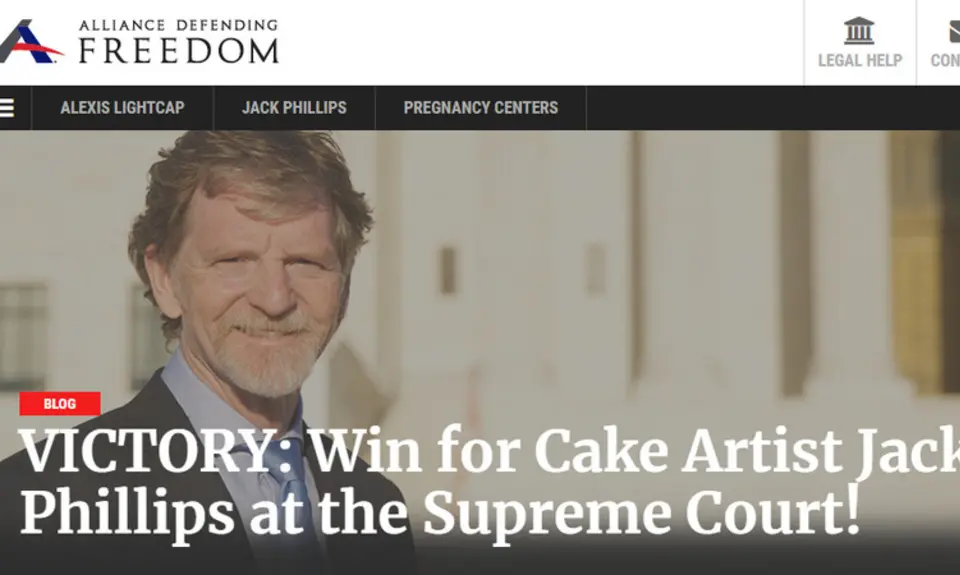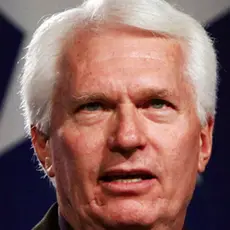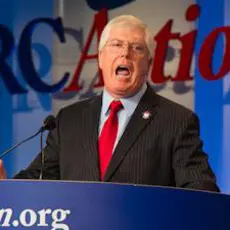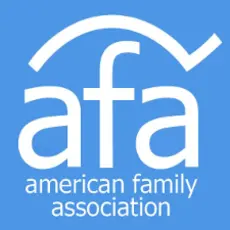Anti-LGBTQ groups celebrated Monday’s Supreme Court ruling in a much-watched case involving a baker who violated Colorado’s anti-discrimination laws by refusing to make a custom wedding cake for a gay couple.
The baker had argued that making a wedding cake for the gay couple would violate his religious beliefs and freedom of speech, and the case was seen as a major test of the Religious Right’s effort to firmly establish in law the standard that a business owner’s religious beliefs trump nondiscrimination laws when it comes to LGBTQ people and same-sex couples. Religious Right leaders celebrated the ruling in favor of the baker even though the Court did not go as far as they had hoped.
The Court found that comments made by members of the Colorado Civil Rights Commission reflected disrespect toward the baker’s religious beliefs, which violated his right to fair treatment in a way that reflected government hostility toward religion. So the Court ruled against the state without addressing the broader constitutional questions about nondiscrimination laws and business owners with anti-LGBTQ beliefs.
Anti-LGBTQ activists were ecstatic. “God bless America. Glory Hallelujah,” radio host and “conservative warrior” Wayne Allen Root declared. The American Family Association’s Bryan Fischer called it “a huge victory for religious liberty in our winnable war!” Fischer, never one to treat LGBTQ people with respect, sneered at what he calls “sodomy-based ‘marriage.’” Matt Barber called it ”the biggest culture war game changer in decades,” adding, “It cannot be overemphasized what a historical win this is for #ReligiousLiberty and “what a devastating blow it is to the homofascist #LGBTQ political agenda.” Ted Cruz celebrated “a major victory for religious liberty.”
Some Religious Right groups and right-wing pundits, eager to declare victory, denied that the ruling was a narrow one, with some not looking past the 7-2 vote to the underlying reasoning. Notably, even Fox News correctly described the decision as a “narrow ruling,” but Gary Bauer decried what he called a “fake news effort to down play it as being decided on narrow grounds.”
Ralph Reed’s statement was simply wrong, saying that the Court “has reaffirmed that the Constitution protects freedom of speech, including speech of a religious content, and the state cannot compel speech against the will of the individual.” In reality, the Supreme Court punted on the free speech claims made by the baker and his lawyers at the Alliance Defending Freedom.
Liberty Counsel called it a “huge victory for the religious rights of private citizens,” predicting that the decision will have a “wide impact regarding the clash between free speech and the LGBT agenda,” noting that 21 states include sexual orientation and/or gender identity in their public accommodations laws. “A person should be free to refuse to be used as a mouthpiece for an objectionable message,” said Mat Staver. “Today’s ruling protects that inalienable right to conscience.”
Alliance Defending Freedom, the Religious Right legal giant that represented baker Phillips —or as they describe him, the “cake artist”—sent an email to supporters, declaring, “This is a big win—not just for Jack, but for every American who values freedom. Praise God!” The letter said that “the court upheld Jack’s freedom to live and work consistently with his beliefs.”
Broadcaster Todd Starnes, always eager to promote tales of alleged anti-Christian persecution, told radio listeners, “It’s a good day, but there really ought not to be much celebrating, because our first freedom is under attack ... If our first freedom is destroyed, then I believe all of our other freedoms are up for grabs.”
ADF and other Religious Right groups are playing a long game with parallel strategies, pushing for incremental legal progress in cases like this one while filling federal judgeships with right-wing ideologues—some of them from ADF itself—who will rule more expansively in their favor in the future. The Heritage Foundation’s Ryan Anderson, who has published a road map for doing away with marriage equality, declared the decision “a big win for the religious liberty of all Americans.” Anderson took the opportunity to push for Congress and states to pass laws like the proposed First Amendment Defense Act, which would create the kind of broad license to discriminate that the Court declined to do in this ruling.
Phillips’ ADF attorney Kristen Waggoner spoke to reporters on a call on Monday afternoon. She too called it a “broad ruling,” and when a reporter asked for a specific passage from the ruling to support such a “hypothesis,” she cited the 7-2 majority’s affirmation that the government was wrong to punish Phillips and cannot express hostility toward people of faith.
She did acknowledge that the court did not rule on the claim that Phillips’ cakes were a form of expression constitutionally protected as free speech, leaving that question “open for another day.” She added that the ruling “will affect a number of cases for years to come in free-exercise jurisprudence.” She said the decision could build on last year’s Trinity Lutheran ruling, which weakened church-state separation.
ADF also represents florist Baronelle Stutzman, and Waggoner said other cases involving filmmakers and calligraphers are also working their way through the courts. Today’s decision will give lawyers in those cases an opportunity to look for “any hint of hostility” from government officials.








